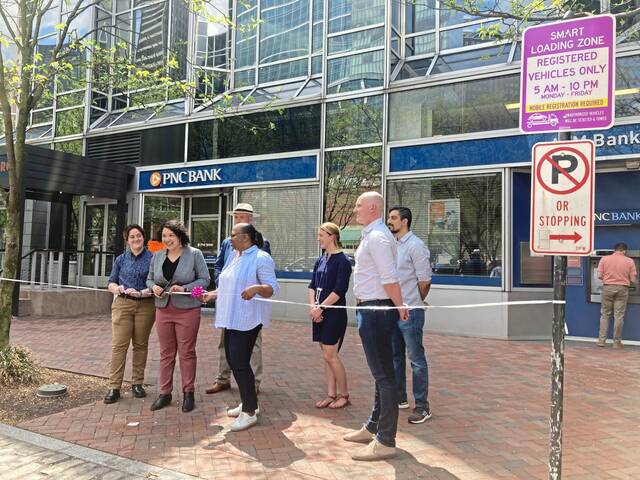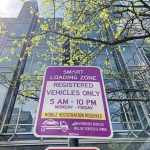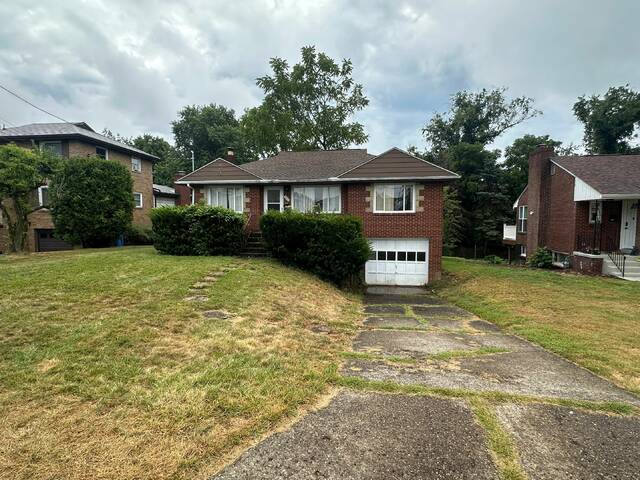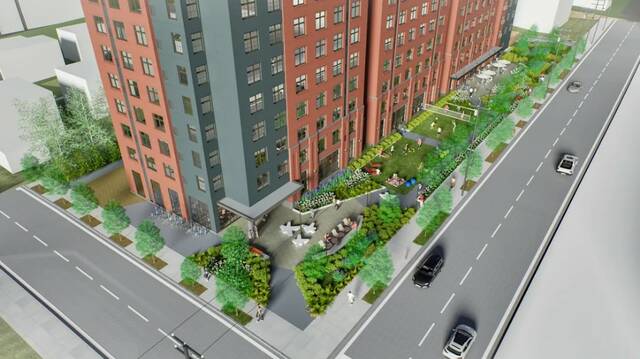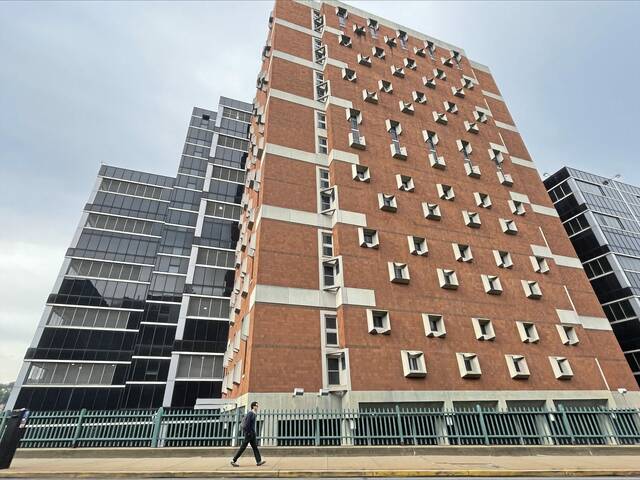Pittsburgh on Monday launched its first smart loading zones, which aim to make it easier for delivery drivers and others to find on-street parking spaces outside of businesses.
The pilot program is being funded through a $100,000 grant from Los Angeles-based Automotus, which is implementing the program in Pittsburgh and other cities.
Drivers for delivery companies like Door Dash, Uber Eats or Amazon will be able to use the designated parking zones for their short-term parking needs, said Kim Lucas, the acting director of Pittsburgh’s Department of Mobility and Infrastructure.
This comes as such delivery services have “increased exponentially” in recent years, Lucas said.
Drivers can register by scanning a QR code displayed on the purple signs at the smart loading zones. They will enter information including their license plate, payment method, what kind of car they drive and what company, if any, they are driving for.
After registering, drivers will be able to park and automatically pay at the special spots without having to pay a meter or even pulling out their phones, said Jordan Justus, co-founder and CEO of Automotus.
Cameras monitoring the spots will automatically charge vehicles for parking there by reading license plates. When cars that park in the spots but aren’t registered, the system will automatically send a bill to the home address associated with the plate number, he said.
This method is more reliable than standard parking meters, where some people don’t pay the meter and simply hope they won’t get ticketed, Lucas said.
“We know that with parking meters, it’s almost an honor system — the same with loading zones,” she said.
To encourage people not to linger at the spots too long, smart loading zones use a graduated payment system. For the first five minutes a car is parked in the spot, they’re charged seven cents per minute. That number jumps incrementally, up to 27 cents per minute for cars that park between 30 and 60 minutes.
That means that a driver who parks in a smart loading zone for eight hours would be charged almost $130.
“If you utilize that parking and park there all day, it’s going to get pretty hefty,” said Gwen Bolden, director of on-street and metered services for the Pittsburgh Parking Authority.
People who plan to park for a long period of time — or large commercial deliveries — will therefore be discouraged from using the spots, Lucas explained, freeing them up for delivery drivers or quick drop-offs. That way, businesses will know that they can reliably count on delivery drivers to park nearby and services like Door Dash or Uber Eats can efficiently pick up orders without circling the block to find parking, she explained.
The program also will collect data about what kinds of cars are parking in the zones, how long they’re staying and other related information, Justus said. This will allow the city to understand the demand for such loading zones and use that knowledge in future loading zone and parking planning, he said.
The locations are marked by purple signs and purple curb markings, Lucas said.
There are about a dozen smart loading zones going into effect Monday, including 10 in the city’s central business district. Others may be added later.
A $3.8 million grant from the Department of Energy will allow Automotus to expand their program to also gather information about whether drivers are using electric, hybrid or gas-powered cars, Justus said. The idea is to potentially offer lower rates to people driving electric vehicles. That initiative — which will include several cities, including Pittsburgh — is slated to begin in early 2023, he said.



